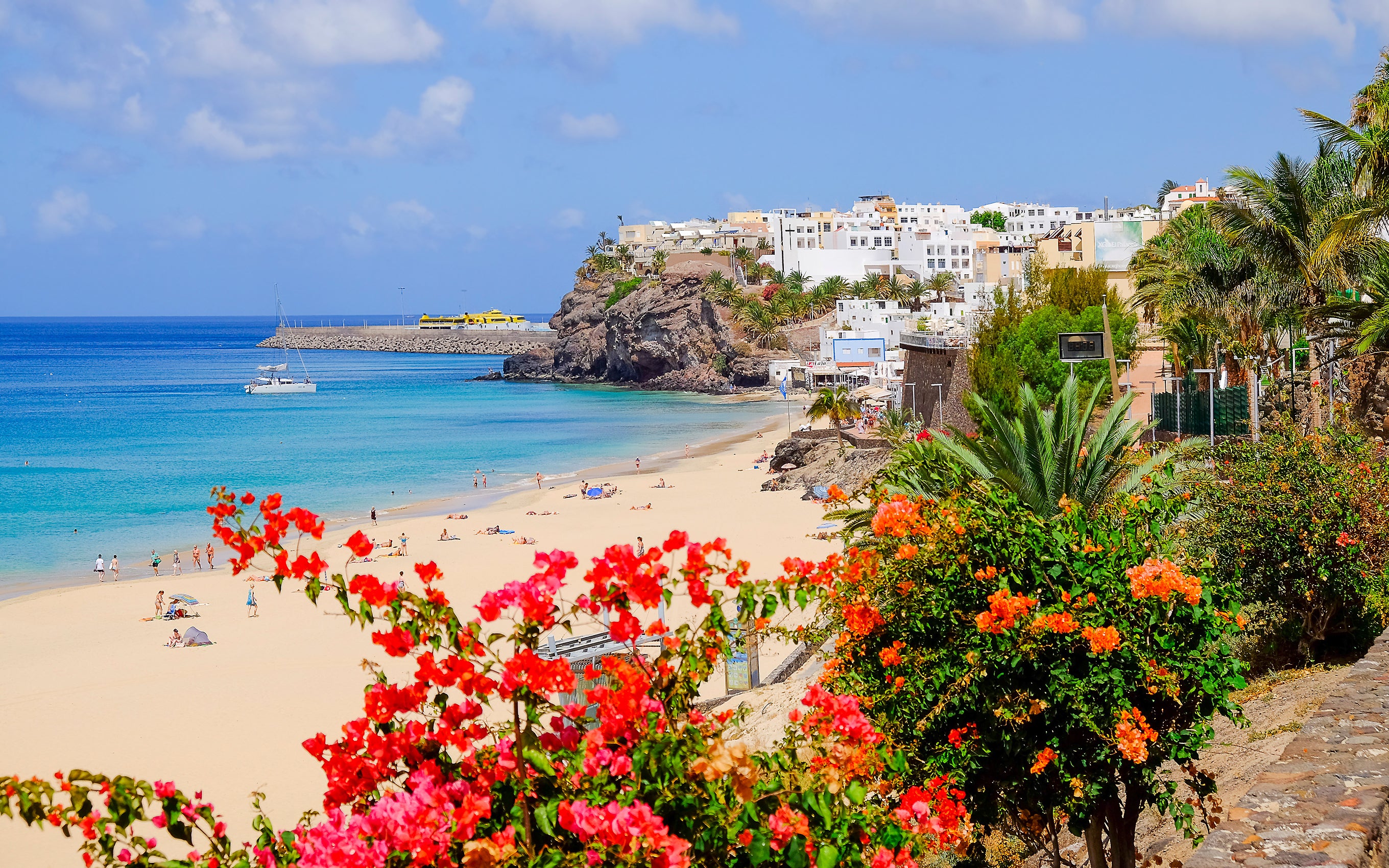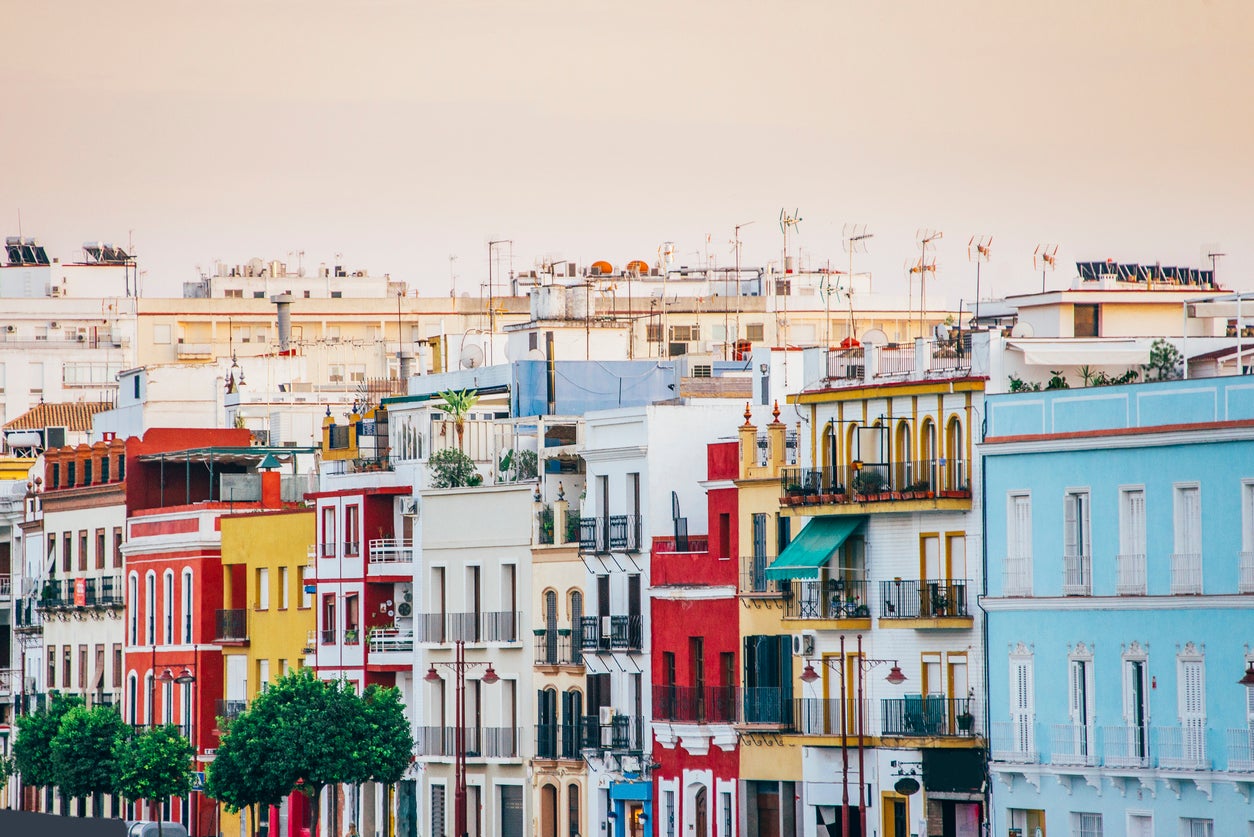Tips please on what to see and do on Fuerteventura
Simon Calder answers your questions on keeping busy in Fuerteventura, entry into Spain and train-strike refunds


Q I am off to Fuerteventura, staying in Costa Calma. What do you recommend for me to do while my husband windsurfs all day?
Martina V
A Fuerteventura is the closest of the Canary Islands to Africa – as close as 60 miles to the shore of Morocco. I have to be entirely honest and say: having visited all the Canaries, I have found Fuerteventura the least appealing.
Yet it is still a beautiful Atlantic island with a Spanish imprint, and therefore you can look forward to enjoying your stay. Beyond the strip of hotels and apartments of Costa Calma, you should first head southwest to the Jandia natural park – where the raw, restless geology of the island is clearly exposed.
To the northeast, the Cuchillos de Vigan is another protected area that strongly resembles the surface of the moon. If you are renting a car for the day to visit the parks, you can also use it for a drive into the hills to the north – and visit villages such as Betancuria, which feels a world away from the seaside resorts.
The capital of Fuerteventura, Puerto del Rosario, is not the most alluring small city in Spain – or even the Canaries – but there is a busy port and some interesting cafes. From the port, you could board a ferry for Gran Canaria – but instead, if you are planning some island hopping, make for Lanzarote.
The northern port of Corralejo has a link to Playa Blanca at the foot of Lanzarote, which is both a lovely resort and the gateway to an altogether more exciting island. Ferries leave frequently and take about half an hour.

Q Is there any truth in you needing £97 per person for entry into Spain?
Katie Sewell
A I am afraid the sum required by “third-country nationals” such as the British for travel to Spain is more than £97. The underlying principle according to the applicable Schengen area regulation is that temporary visitors should have “cash, travellers’ cheques and credit cards” that demonstrate “sufficient means of subsistence”.
Glossing over the quaint possibility that anyone might still be carrying travellers’ cheques, the serious point is this: on leaving the European Union, the UK asked to be treated as third-country nationals. The prevailing law made it perfectly clear that we would be expected to demonstrate the wherewithal for the planned trip.
The question is: what constitutes “sufficient means”? The European Union stipulates the average price for board and lodging in budget accommodation, multiplied by the number of days stayed. This is known as the “reference amount”, and member states are required to fix the amount each year.
Spain defines the daily figure as 10 per cent of the monthly minimum wage. This year, that has increased to €1,134. For each day of your planned stay, you must show you have access to at least €113.40 – currently £97.70. However, the Spanish authorities also impose a minimum amount corresponding to a stay of nine days: €1,020.60 (£897). Yes, a family of four on a week’s package holiday is required to demonstrate funds of over £3,500.
In addition, you are required to have proof of a return ticket (or an onward ticket to a country where you are certain to be admitted). This must be in your name, non-transferable and non-refundable.
These specific figures apply solely to Spain, our most popular overseas destination. Other countries have their own amounts, but the general position remains the same.
A travel nightmare? In practice, that is unlikely. In the 40 months since the end of the Brexit transition phase, I have never been asked to provide evidence of financial resources when travelling to the EU. On one occasion (entering Eindhoven in the Netherlands) I was asked to show a return ticket, which I was able to do on my phone.
Anecdotal evidence suggests that sometimes Spanish frontier officials running the checkpoint from Gibraltar may ask for evidence, but I have not heard of travellers being turned away. I imagine the letter of the law is imposed very rarely, only on individuals who do not match the standard profile of a tourist.

Q Can rail passengers receive a refund on strike days? My LNER booking says my ticket is non-refundable.
Kathryn B
A Train drivers belonging to the Aslef union are heading towards their two-year anniversary of industrial action. The long and bitter dispute over pay and working arrangements began in the summer of 2022. The background: rail revenue has collapsed since the Covid pandemic.
Taxpayer subsidies are running at £2.8bn annually on top of the normal support. Train operators, directed by ministers, say even a modest pay rise is unaffordable unless it comes with reform of working practices that will cut costs and increase productivity. The union insists train drivers are due a substantial wage hike with no strings attached.
With no negotiations for a year, it now seems inevitable that intermittent strikes will continue until there is a change of government. Passengers must, therefore, continue to navigate sporadic strikes and all the disruption they bring.
I infer you are booked on 9 May, the day that drivers working for LNER are due to strike again – along with their colleagues at TransPennine Express and Northern. The short answer is that any passenger with a booking for a train operator that is on strike on a particular day is entitled to a full, fee-free refund. This also applies if, say, most of your journey is on LNER on a non-strike day, say from Newcastle to London on 7 May, but you are connecting to a strike-hit rail firm such as Southeastern to Canterbury.
If your planned journey is limited to the East Coast Main Line, then you could take a refund and hope to rebook on (for example) one of the open-access operators, Lumo, Hull Trains and Grand Central. But before you do that: if your journey is on the key Edinburgh-Newcastle-York-London axis, and you do not plan to travel too early or too late in the day, you should be able to travel on LNER without any problem besides perhaps moving your departure by half-an-hour or so.
The train operator will once again run regular strike-day services. When those are announced, a week or so before the industrial action, you can just ask to switch to the best available alternative to your planned time.
Email your question to s@hols.tv or tweet @simoncalder
Join our commenting forum
Join thought-provoking conversations, follow other Independent readers and see their replies
Comments
Bookmark popover
Removed from bookmarks